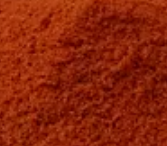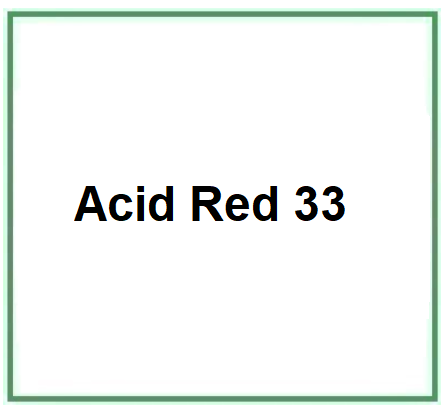Acid Red 33 is an azo chemical dye and is also known as D & C Red No. 33, CI 17200, R33.
It was added to the dye list in 1984 with the name 5-Amino-4-hydroxy-3-phenylazo-2,7-naphthalenedisulfonic acid (disodium salt).
CI 17200 is used in the production of a variety of products, including cosmetics and pharmaceuticals. The "CI" in the name stands for "Color Index", which is a reference system for dyes and pigments used by a variety of industries.
The synthesis of CI 17200 typically involves a multi-step process that includes the reaction of various organic compounds. However, the exact synthesis process may vary and is owned by the manufacturer.
The synthesis process takes place in several stages:
- Step 1: Preparation of raw materials: may include amines, acids and other chemicals.
- Step 2: Reaction. The raw materials react under specific conditions to form the dye. This may involve multiple reaction stages and the use of catalysts.
- Step 3: Purification. The resulting dye is then purified to remove any raw materials and by-products not reacted by various techniques, including filtration, distillation and crystallization.
- Step 4: Drying. The purified dye is then dried to remove any residual solvent.
It comes in the form of fine red powder.

What it is for and where
Cosmetics
CI 17200 is a restricted ingredient as IV/37 (CI 17200) III/254 (Acid Red 33) a Relevant Item in the Annexes of the European Cosmetics Regulation 1223/2009. Ingredient at risk: Disodium 5-amino-4-hydroxy-3-(phenylazo)naphthalene-2,7-disulphonate and its unsoluble barium, strontium and zirconium lakes, salts and pigments
- Hair dyeing. It is an ingredient that adds a colouring to the hair that can be temporary, semi-permanent or permanent depending on what other ingredients are added to achieve the result. The pH for hair dyeing is generally between 9 and 10.
- Colorant. This ingredient has the function of colouring the solution in which it is inserted in a temporary, semi-permanent or permanent manner, either alone or in the presence of the complementary components added for colouring.
Safety
From studies carried out by the SCCP (Scientific Committee for Consumer products), at the maximum concentration of 0.5% does not pose risks for the health of the consumer (1).
- Molecular Formula C16H11N3Na2O7S2
- Molecular Weight 342.297 g/mol
- CAS 3567-66-6
- EC number 222-656-9
Synonyms :
- C-Rot 58
- Acid Red 33
- Red 33
- Acidred 2a
- Aka227
- Fuchsia Red
- D&C Red 33
- Covacap Rouge W32103
- 2,7-Naphthalenedisulfonic acid, 5-amino-4-hydroxy-3-(phenylazo)-, disodium salt
- 5-Amino-4-hydroxy-3-(phenylazo)-2,7-naphthalenedisulfonic acid, disodium salt
- 2,7-Naphthalenedisulfonic acid, 5-amino-4-hydroxy-3-(2-phenyldiazenyl)-, sodium salt (1:2)
- disodium (3Z)-5-amino-4-oxo-3-(phenylhydrazinylidene)naphthalene-2,7-disulfonate
- Disodium 5-amino-4-hydroxy-3-(phenylazo)naphthalene-2,7-disulphonate
- 2,7-Naphthalenedisulfonic acid, 4-amino-5-hydroxy-6-phenylazo-, disodium salt
- EINECS 222-656-9
- Acid Fuchsin Fast B
- Acid Red B
- Red 10B
- D&C Red 33
- D&C Red No. 33
- Red No. 227
- D & C Red no. 33
References_______________________________________________________________________
(1) http://ec.europa.eu/health/ph_risk/committees/04_sccp/docs/sccp_o_120.pdf
![]() Acid Red 33
Acid Red 33 


